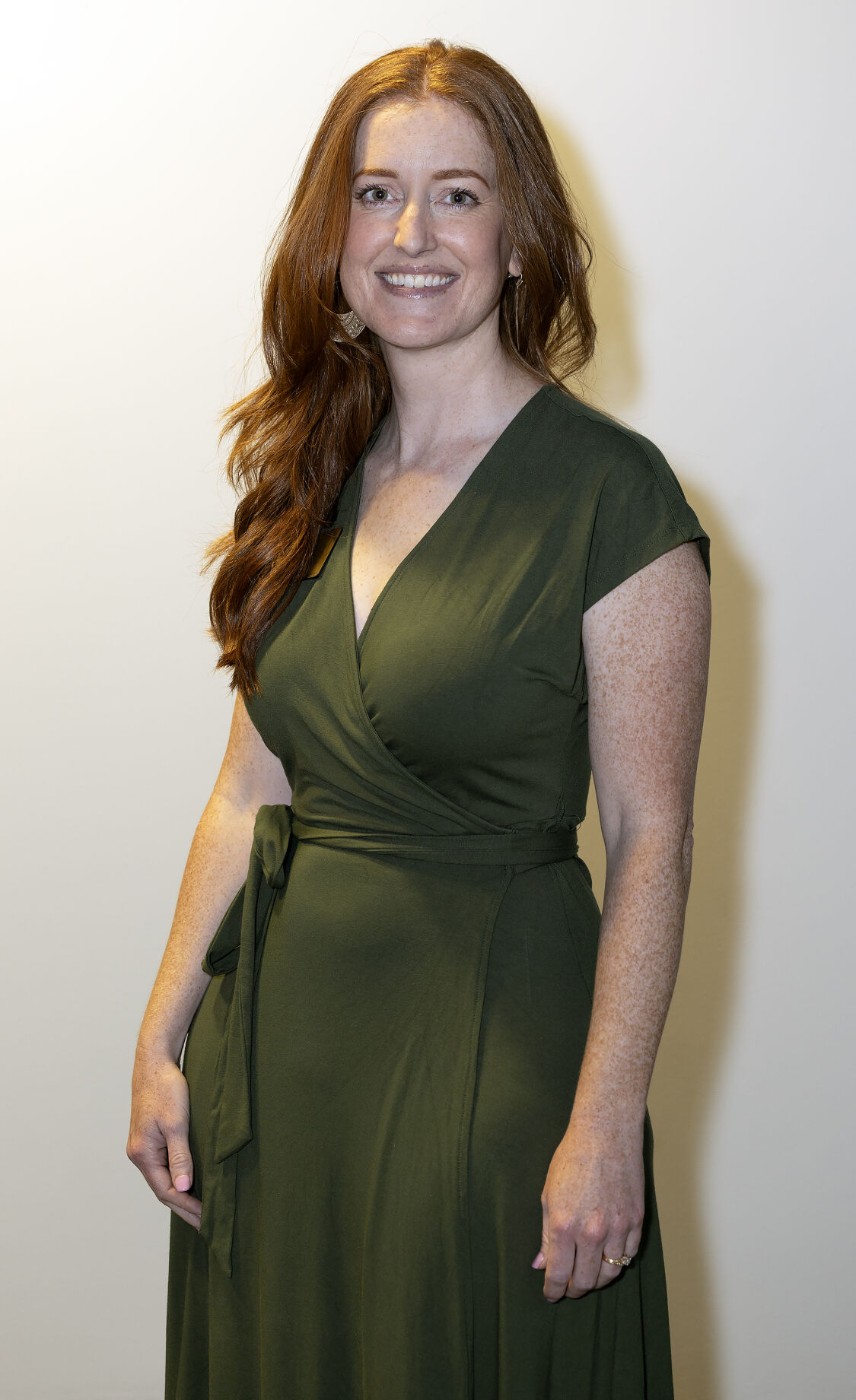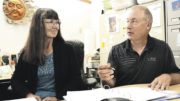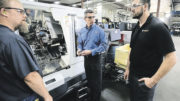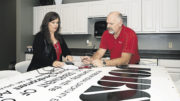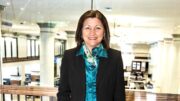Wendy Scardino, Vice President of Development and Marketing, National Mississippi River Museum & Aquarium
Wendy Scardino directs business development, fundraising, donor development, strategic planning, marketing and membership for the National Mississippi River Museum & Aquarium. Her extensive experience includes leveraging digital media platforms, public relations, media relations and promotional partnerships to advance organizational mission while enhancing the community.
With 20 years of experience in the nonprofit sector, she holds an Master of Business Administration from Clarke University in Dubuque and a Bachelor of Arts in communications from University of Northern Iowa, in Cedar Falls.
Tell us about your field and what attracted you to it.
Marketing and development — what’s not to love? It’s an art and a science that’s constantly changing and evolving, and a field where you’re always learning. There’s creativity in creating a fundraising event or visitor marketing campaign and strategy in how you carry them out to achieve your desired results. These skills have served me well in other areas as most challenges can be solved through strategy, creativity and a desire to keep learning.
How has your field changed in the time you’ve worked in it? How have you adapted?
Both marketing and development have drastically changed in the last 20 or so years. Digital marketing was just getting started when I entered the workforce and much of the focus on my undergraduate degree focused solely on traditional marketing.
Digital tools also have drastically changed how we fundraise and communicate with our supporters. To adapt, you need a healthy appetite to learn and a sense for which innovations and technologies have the potential to support your work best.
What hasn’t changed in all that time is that people seek connection and meaningful engagement. Using technology to free your time to focus on building those personal experiences and connections is where digital technologies can shine.
Is there a person or people who have had a tremendous impact on you?
My mom. She’s always encouraged me in my pursuits, of which there were many, and dedicated a lot of time and energy getting me where I needed to be, showing up for countless performances or games, and seeking out opportunities she felt I’d be interested in.
I also credit her with my love of learning. My parents prioritized education, but beyond formal education, any trip my mom planned was sure to include a unique historic site, museum or national park. That support and those opportunities shaped who I am today.
Do you have any advice for young people and/or new graduates?
First, never stop learning. The more you learn, the more opportunities you’ll be ready to take on when they present themselves. And second, say yes to the opportunities that scare you and make you wonder if you’re ready for them. That’s where you’ll grow the most.
Is there a story or an anecdote that illustrates your philosophy either in life or in your chosen field?
I can’t say I feel old enough or wise enough to have a philosophy, but I would liken life and work to improv. Oftentimes, things don’t go as you expect them to; however, the more you practice, the better you get at anticipating and responding. Work as a team and support the other “players.” Most of all, say “yes, and” instead of “no.”
What have you found to be the most valuable resource for learning? Are you an on-the-job learner or do you prefer another way?
On the job learning, conferences and networking with peers have been instrumental to me. The museum and aquarium fields are immensely collaborative, and I love the exchange of ideas found in each of these platforms. A colleague and I recently got back from visiting peers at the Shedd Aquarium and left with some great ideas and ways to scale our efforts.
Math vs. creativity. People person vs. introvert. Slow and steady vs. quick and nimble. Where do you fall on those divides? Do you believe there even is a divide?
So many of these examples are made better in tandem with the other. The more quality time spent building a plan, the faster it can be implemented. The more senses involved in learning, the better the retention. The best things in life aren’t either/or, they’re and.
When you think of the future, what kind of changes would you like to see in your field? In the broader world?
The future is now. Nonprofits are leveraging tools and technologies to more effectively reach our goals just like for-profit businesses.
When I think of the museum specifically, we are diving into creating relevant programs and exhibits, building inclusive experiences, actively collecting to document for future generations what is happening in the here and now, saving species, serving as a collaborator and partner.
My vision for the future is that the River Museum remains a strong economic driver for this community, touching the lives of each and every person here. The future is brighter as we bring people together around shared experiences and engage the community in our work — whether historical or environmental — to create more understanding for each other and a stronger appreciation for our environment. All of this while continuing to surprise and delight visitors from throughout the country and around the world.
How has your professional life helped you grow as a person?
I would say it’s pushed me out of my comfort zone on more than one occasion. Those are always the times we grow the most.
How do you strike a work/life balance?
I can’t say I’ve always struck the right balance. A friend of mine once told me “A woman can do anything, just not all at once”. At the time, I had two young kids and one on the way, and I was working full time while going to grad school. Her words resonated with me, and I’ve thought about them often when I consider taking on something new.
I also credit Kurt Strand’s leadership for supporting all of us at the River Museum in striking a work/life balance. If one of my kids has a game or school activity, he’ll be the first to say “You can’t miss that.” I’m thankful to have a boss who reinforces spending time on the important things in life.


